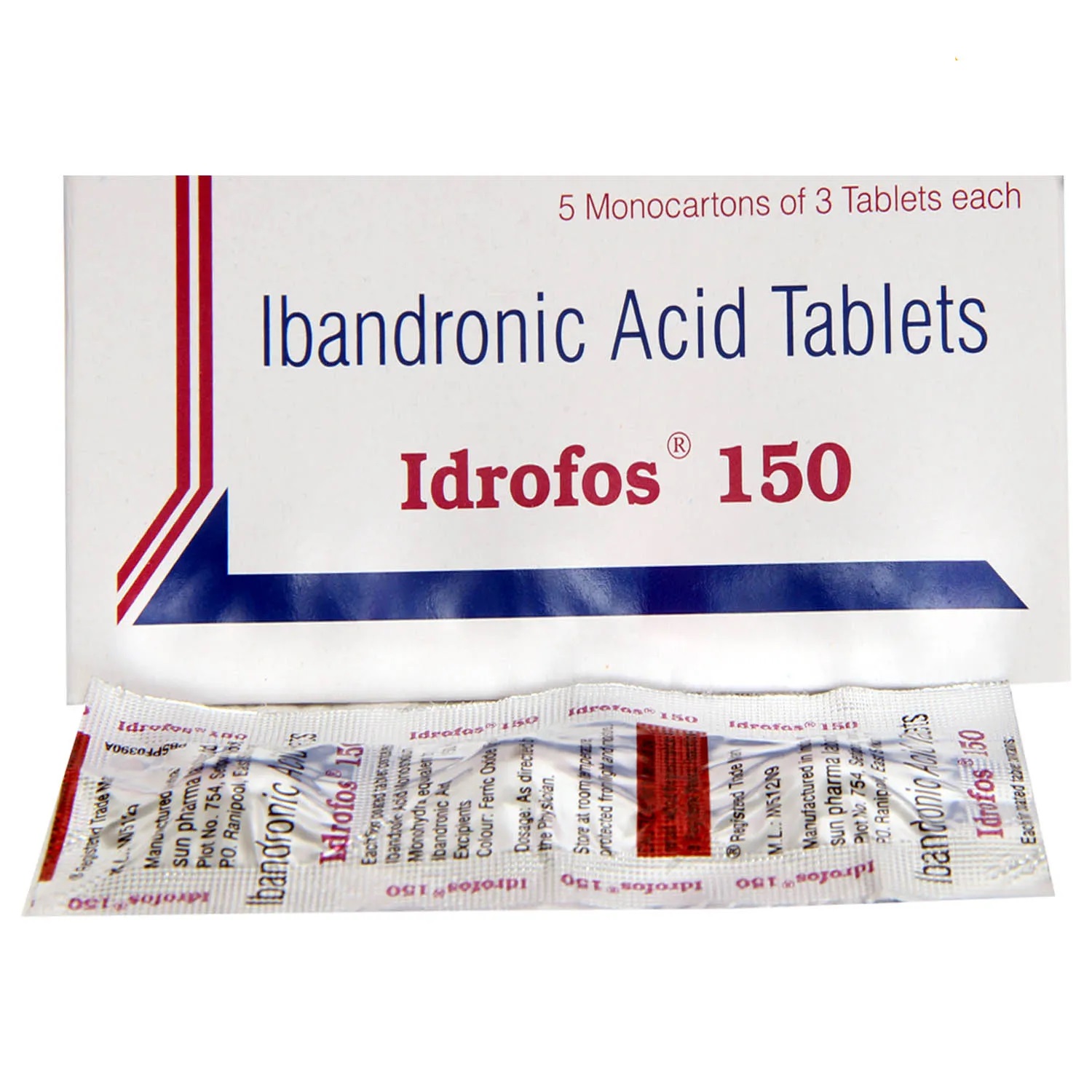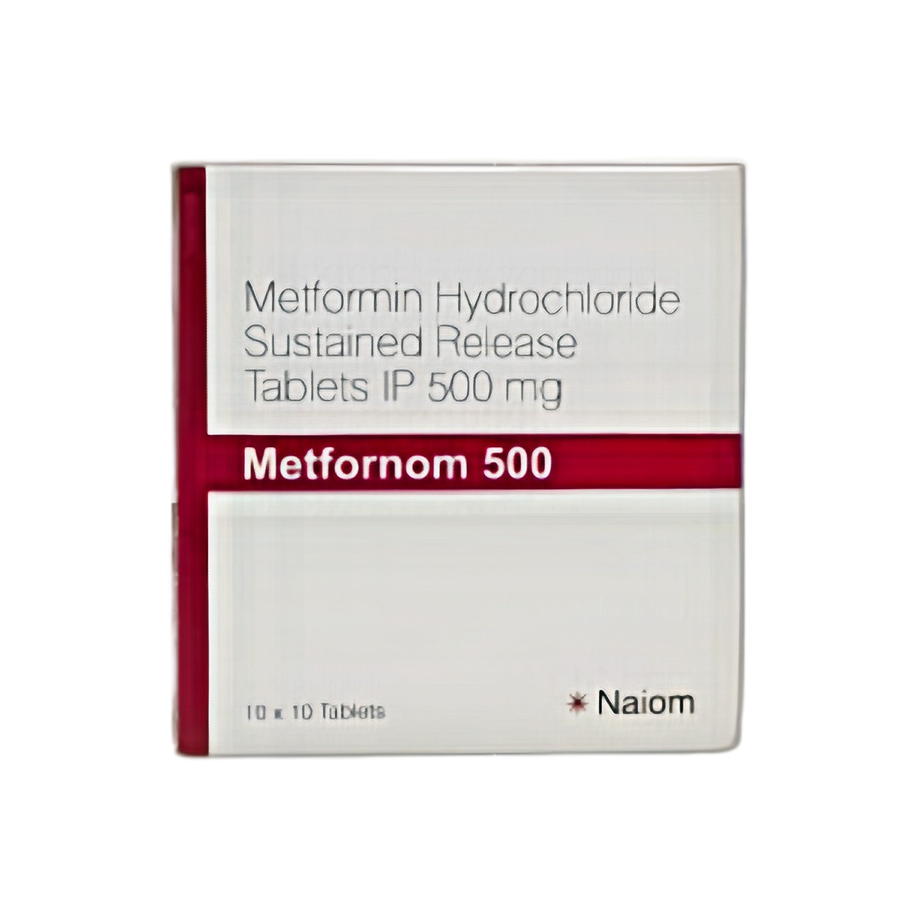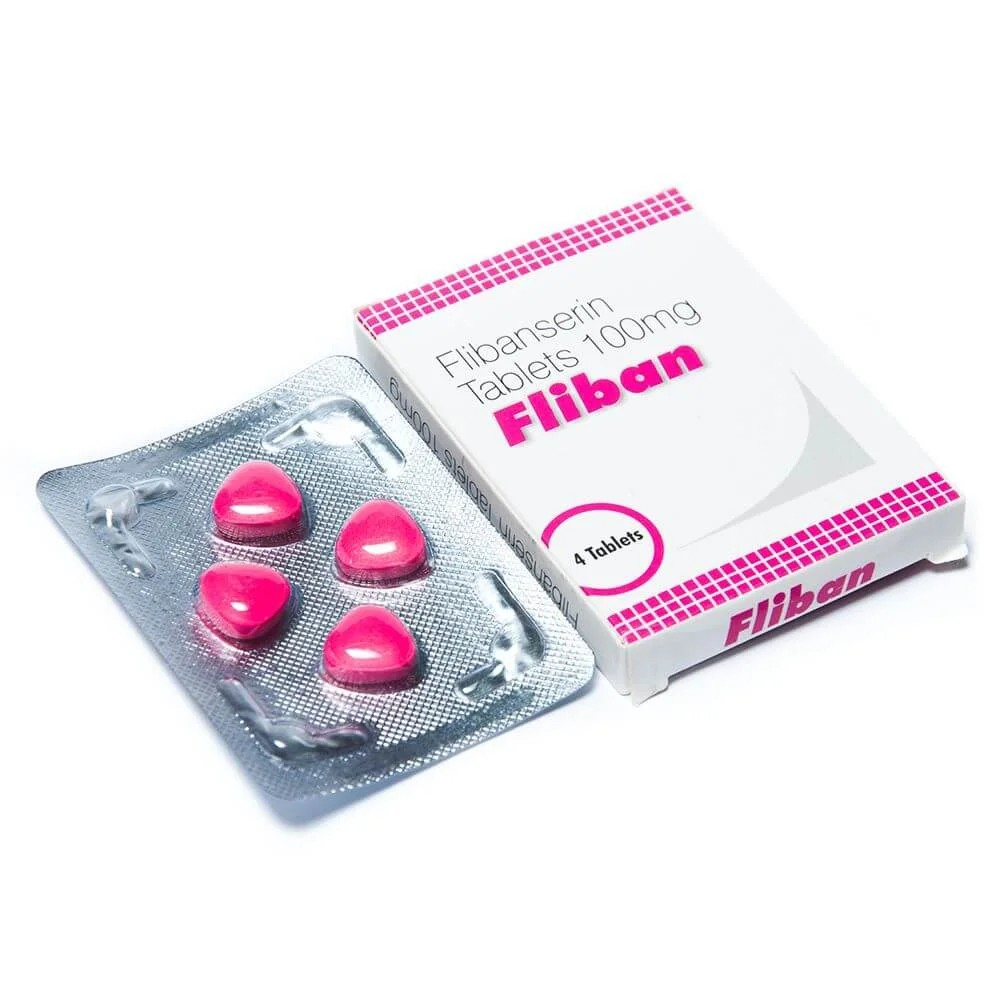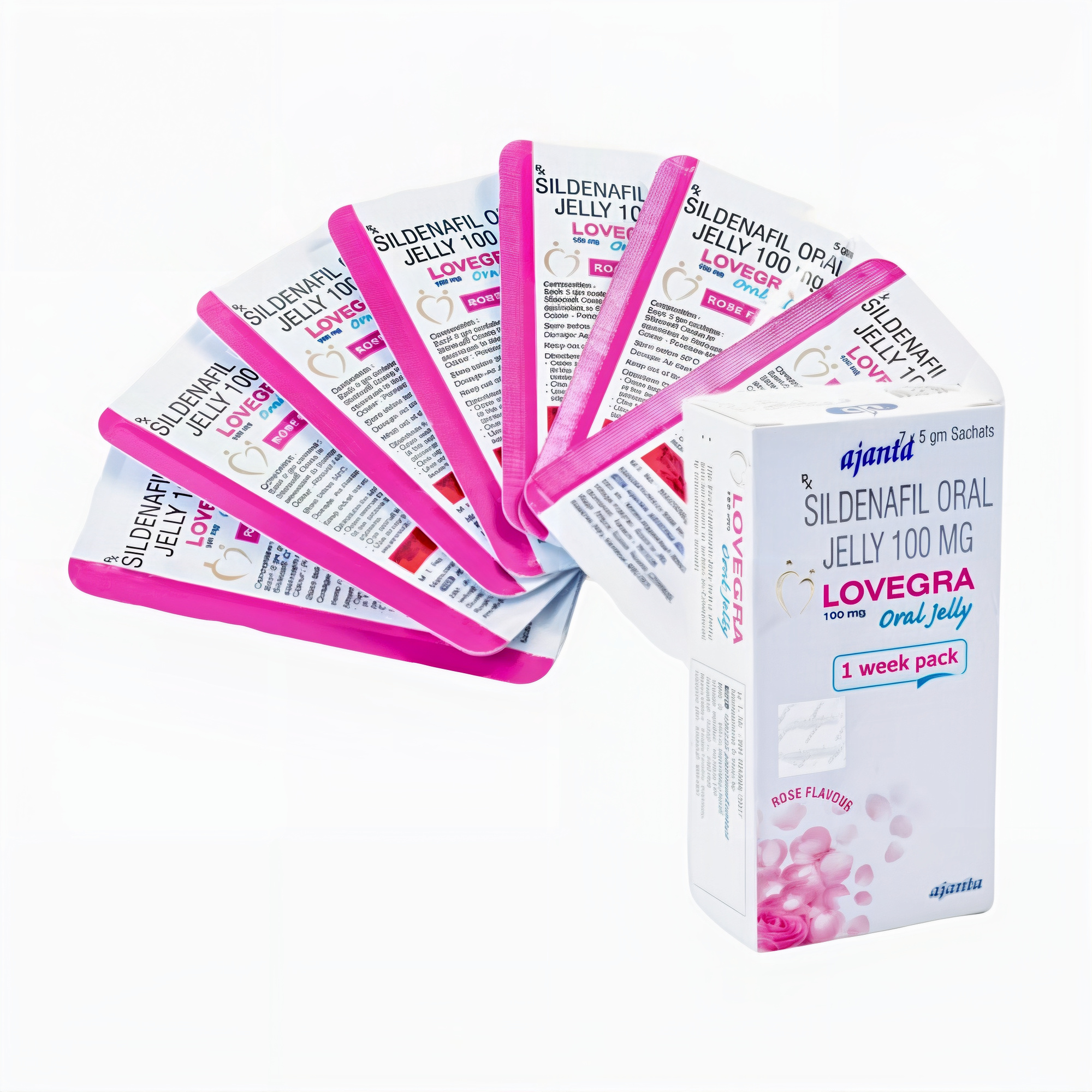Description
Idrofos 150 Tablet (Ibandronic Acid 150mg)
Idrofos 150 Tablet (Ibandronic Acid 150mg) is utilized in the treatment and prevention of postmenopausal osteoporosis. This medication plays a pivotal role in strengthening bones by inhibiting the activity of osteoclasts, the cells responsible for bone breakdown. By maintaining bone density, it effectively reduces the risk of fractures in women experiencing osteoporosis post-menopause. For optimal results, it is typically taken on an empty stomach and should be consumed regularly as prescribed by a healthcare professional. The treatment might also encompass dietary adjustments and supplement intake to boost bone health.
Uses Of Idrofos 150 Tablet (Ibandronic Acid 150mg)
- Treatment and prevention of postmenopausal osteoporosis
- Treatment of steroid-induced osteoporosis
- Increasing bone mass in men with osteoporosis
- Treatment of Paget’s disease of bone
- Treatment of cancer-related bone loss
Treatment and prevention of postmenopausal osteoporosis. This is a prevalent condition in postmenopausal women, leading to weakened bones that are more prone to fractures. Idrofos 150 Tablet (Ibandronic Acid 150mg) helps reduce the risk of fractures.
Treatment of steroid-induced osteoporosis. Prolonged steroid use can result in bone loss and increased fracture risk. Idrofos 150 Tablet (Ibandronic Acid 150mg) mitigates this bone deterioration.
Increasing bone mass in men with osteoporosis. Although less common in men, osteoporosis can significantly impact bone strength. This medication aids in increasing bone density in affected men.
Treatment of Paget’s disease of bone. A chronic disorder causing abnormal bone destruction and regrowth, it can be effectively managed with Idrofos 150 Tablet (Ibandronic Acid 150mg).
Treatment of cancer-related bone loss. Certain cancers and their treatments can lead to bone weakening. This medication assists in maintaining bone integrity in such scenarios.
Safety & Precautions
- Avoid if breastfeeding; consult your doctor for alternatives
- Inform your doctor about any kidney problems or low calcium levels
- Notify your doctor about all medications you are currently taking
- Avoid smoking as it can decrease bone mineral density
- Limit alcohol consumption to prevent further bone loss
- Report any signs of serious side effects, such as severe kidney issues
- Stay hydrated to prevent kidney problems
- Do not miss scheduled medical tests to monitor your kidney function and mineral levels
- Regularly take calcium and vitamin supplements as advised
- Adhere to your doctor’s advice on dietary changes
Side Effects
Most side effects do not require any medical attention and disappear as your body adjusts to the medicine. Consult your doctor if they persist or if you’re worried about them.
- Headache
- Musculoskeletal (bone, muscle, or joint) pain
- Heartburn
- Diarrhea
- Indigestion
- Dizziness
- Hypercholesterolemia (high cholesterol)
- Upper respiratory tract infection
- Urinary tract infection
- Serious kidney problems, especially when dehydrated
- Low levels of calcium in the blood
- Pain in the mouth or jaw
- Serious side effects requiring urgent medical attention
- Temporary gastrointestinal discomfort
- Skin rashes in rare cases
FAQ
1. How should I take Idrofos 150 Tablets (Ibandronic Acid 150mg)?
Idrofos 150 Tablet (Ibandronic Acid 150mg) should be taken on an empty stomach, usually once a month as prescribed by your doctor. Swallow the tablet whole with a full glass of water to ensure it reaches your stomach quickly. Avoid lying down for at least 30 minutes after taking the tablet to prevent esophageal irritation.
2. Can I take Idrofos 150 Tablets (Ibandronic Acid 150mg) if I have pre-existing health conditions?
It is essential to inform your doctor about any pre-existing health conditions, especially kidney problems or low calcium levels. Additionally, discuss any other medications you are taking, as certain drugs may interact with Idrofos 150 Tablet (Ibandronic Acid 150mg).
3. What lifestyle changes should I consider while on Idrofos 150 Tablet (Ibandronic Acid 150mg)?
Incorporate regular weight-bearing exercises, such as walking or jogging, to help strengthen your bones. Additionally, ensure your diet includes foods rich in calcium and vitamin D. Avoid smoking and limit alcohol consumption, as these habits can adversely affect bone health.
4. What should I do if I miss a dose of Idrofos 150 Tablet (Ibandronic Acid 150mg)?
If you miss a dose, take it on the morning after you remember, provided it is not within the same week as your next scheduled dose. Do not take two tablets within the same week. Resume your regular monthly schedule from your last dose taken.
5. What are the serious side effects of Idrofos 150 Tablet (Ibandronic Acid 150mg)?
Serious side effects include severe kidney problems, low blood calcium levels, and pain in the mouth or jaw. If you experience any of these symptoms, seek immediate medical attention. Also, report to your doctor if you experience persistent gastrointestinal issues or skin rashes.
6. Can I take other supplements while on Idrofos 150 Tablet (Ibandronic Acid 150mg)?
Yes, but ensure that you take them separately from your Idrofos 150 Tablet (Ibandronic Acid 150mg) dose. Calcium or vitamin supplements should not be taken within 30 minutes before or after the Idrofos dose. Your doctor will provide detailed timing instructions and recommend suitable supplements based on your individual requirements.
Mechanism of Action of Ibandronic Acid
Ibandronic acid, a bisphosphonate, plays a crucial role in the treatment of bone-related complications in cancer patients by strengthening bones and preventing bone breakdown. The mechanism of action involves the inhibition of osteoclast-mediated bone resorption. Osteoclasts are cells that break down bone tissue, which is a normal part of the bone remodeling process. However, this becomes problematic when the process is accelerated, as seen in secondary bone cancer and conditions causing elevated blood calcium levels.
By inhibiting these osteoclasts, ibandronic acid helps to maintain bone density, reduce the risk of fractures, and stabilize calcium levels in the blood. This not only enhances bone strength but also mitigates pain and other complications associated with bone metastases.
Administration Methods of Ibandronic Acid
Ibandronic acid can be administered in two primary forms: intravenously and orally as a tablet. Each method has specific guidelines to maximize its efficacy and ensure patient safety.
Intravenous Administration
Intravenously administered ibandronic acid can be delivered through various types of tubes:
- Central line
- PICC line (Peripherally Inserted Central Catheter)
- Portacath
If a central line isn’t an option, the drug might be delivered through a short, thin tube called a cannula, inserted into a vein in the arm. A new cannula is used each time for the treatment.
| Administration Method | Frequency | Duration |
|---|---|---|
| Drip to lower blood calcium | As needed | 2 hours |
| Drip to prevent/reduce bone damage | Every 3-4 weeks | At least 15 minutes |
Oral Administration
When taken as a tablet, ibandronic acid must be consumed first thing in the morning, accompanied by a full glass of water. The following precautions are vital for ensuring its effectiveness:
- Take the tablet at least 6 hours after the last meal, drink (other than water), or other medicines.
- Consume the tablet while sitting or standing to avoid lying down for 1 hour post-ingestion.
- Only take the tablets with water; if you live in a hard water area, use bottled water.
- Follow the specific instructions provided by your doctor or pharmacist carefully.
- Avoid crushing, chewing, or sucking the tablets.
- Ensure to consume the correct dosage—neither more nor less than prescribed.
| Form | Frequency | Additional Instructions |
|---|---|---|
| Tablet | Daily | Take with a full glass of water |
Monitoring and Tests During Treatment
Regular monitoring and testing are integral aspects of managing treatment with ibandronic acid. These tests ensure that the drug is working effectively and identify any potential side effects early on.
Blood Tests
Blood tests are conducted before, during, and after treatment to monitor:
- Levels of blood cells
- Calcium and vitamin D levels
- Kidney and liver function
Urine Samples
Urine samples might be collected to assist in monitoring kidney function and other health parameters that could be affected during the treatment.
| Test Type | Purpose |
|---|---|
| Blood Tests | Monitor blood cells, calcium, vitamin D, kidney and liver functions |
| Urine Samples | Check kidney function |
Recommendations for Dental Care
While undergoing treatment with ibandronic acid, particular attention must be given to dental health due to the potential bone-related side effects. Here’s what you need to know:
- Consult with a dentist before beginning treatment and regularly thereafter.
- Avoid invasive dental procedures such as extractions. Routine dental check-ups and cleanings should continue as usual.
- If dental treatment is necessary, discuss with your healthcare team whether you should temporarily discontinue ibandronic acid.
Concurrent Medications and Dietary Considerations
Cancer drugs, including ibandronic acid, can interact with other medications, herbal products, and certain foods and drinks. For instance, grapefruit and grapefruit juice can increase the side effects of specific drugs. Therefore, it is essential to:
- Inform your healthcare team about all medications, supplements, and over-the-counter remedies you are taking.
- Disclose any other medical conditions or allergies you may have.
| Interaction Type | Examples |
|---|---|
| Medications | Over-the-counter drugs, supplements, herbal products |
| Foods & Drinks | Grapefruit, grapefruit juice |
Tests and Procedures for Optimal Medication Management
Having comprehensive assessments and tests is crucial for individualizing ibandronic acid treatment. Here, we delve into some key tests and their purposes:
- Periodic blood tests to track calcium and vitamin D levels
- Regular urine samples for checking kidney functionality
- Scheduling dental assessments to avoid invasive procedures
Pregnancy and Fertility Considerations
It is crucial to address pregnancy and fertility concerns when undergoing treatment with ibandronic acid:
- It is not known whether ibandronic acid can harm a developing baby. Therefore, effective contraception should be used during and after treatment as advised by your doctor.
- If either partner becomes pregnant during treatment, inform the healthcare team immediately.
- The impact of ibandronic acid on fertility is uncertain, so discuss options with your doctor if you plan to have children in the future.
- Breastfeeding is usually not recommended during treatment, as it is unknown whether the drug passes into breast milk.
| Area of Concern | Details |
|---|---|
| Pregnancy | Use effective contraception, inform healthcare team if pregnancy occurs |
| Fertility | Consult with a doctor if planning to have children |
| Breastfeeding | Typically not recommended during treatment |
Scheduling Treatment and Blood Tests
The timing and frequency of ibandronic acid treatments and blood tests depend on individual patient conditions and treatment objectives. Here is a general guideline:
- Treatment to lower blood calcium: Drip administered for 2 hours, as needed
- Prevent or reduce bone damage: Drip administered over at least 15 minutes, every 3 to 4 weeks
- Oral tablets: Taken daily
Additional Resources and Support
For more detailed information, you can consult the following resources:
- Electronic Medicines Compendium (eMC) – Contains comprehensive patient information leaflets.
- MHRA Yellow Card Scheme – Report any side effects experienced.
Citations and References
Electronic Medicines Compendium, accessed February 2024.
National Institute for Health and Care Excellence (NICE), 2017 and 2018.
Scottish Medicines Consortium, 2004.
British National Formulary, accessed February 2024.
Davis et al., Health Technology Assessment, 2016, Volume 20, Issue 78.










